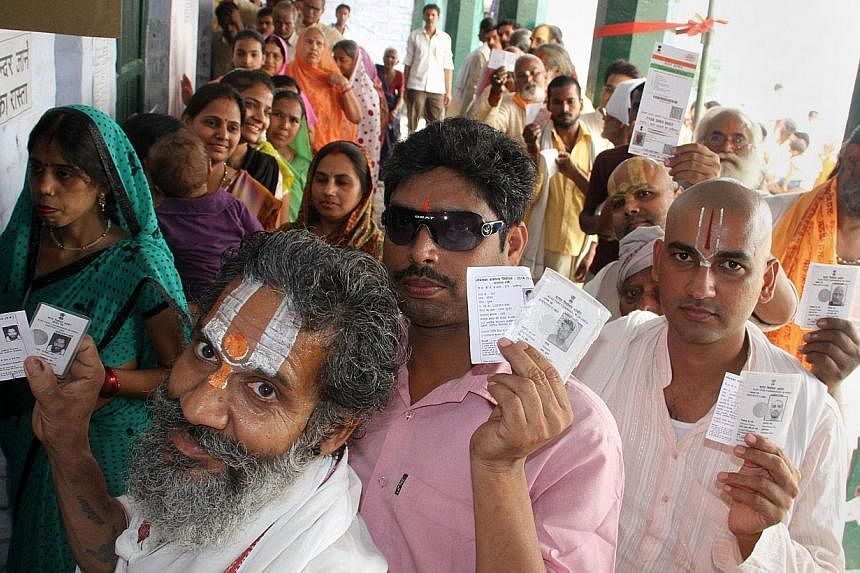In a significant reversal, the Narendra Modi government has laid to rest fears that just to score political points, it would kill a transformational technology for good governance.
Instead of throwing out the unique identification card Aadhaar, created by the previous government, the Modi regime will harness it to directly deliver benefits to millions of recipients, bypassing the sticky fingers of corrupt officials.
The announcement was an important step in fulfilling the ruling Bharatiya Janata Party's (BJP) campaign slogan of "minimum government, maximum governance". To take full advantage of this simple but effective tool of governance, the government needs to clean up the implementation of the programme, which has been marred by inefficiency and misuse.
During the rough and tumble of the election campaign, Mr Modi denounced practically everything the previous government did and that included the Aadhaar card. He mocked the technology, saying "Congressmen were dancing as if it was a herb for all cures".
Since assuming power, however, he has concluded that Aadhaar is a useful "herb" after all.
The biometric identification of Aadhaar linked to a bank account, which has already been issued to nearly half of India's population, is now seen as an useful vehicle to deliver subsidy in cash to those living below the poverty line.
The Economic Survey for 2013-2014, published by the new government acknowledged, without naming Aadhaar, that "new technologies of biometric identification and payments through mobile phones have created a range of new possibilities".
The BJP budget has not only restored Aadhaar to its intended role of identifying welfare recipients, but also allocated 2,039 crore rupees (S$421 million) for completing the enrolment of hundreds of millions more. The government will now move to give legislative sanction to Aadhaar, the lack of which had led the Supreme Court to stay its use for delivering subsidised products like gas.
All this is welcome news, but the government's immediate task would be to undo the results of poor implementation that have thus far marred the scheme.
Mr Hironmoy Das, a retired bank employee who enthusiastically took his wife and son to register for the Aadhaar card, is one such victim of bureaucratic bungling.
After being notified by SMS that his card was ready, he made numerous inquiries at the post office for cards for his family. There were indeed hundreds of official envelopes containing cards sitting in bags, unable to be delivered as they had no street address. The failure of the contract employees, who conducted the iris scan, to properly note the postal address during the registration has rendered the whole exercise useless.
Mr Das is not alone. Throughout the country, hundreds of thousands of Aadhaar cards are gathering dust in post offices. Unless the government finds a way to connect the cards with the right address, the mountains of smart cards in post offices will remain a testimony to misgovernance.
Aadhaar is tailor-made for the kind of clean, accountable e-government that Mr Modi seeks. The card was never meant to be a proof of citizenship and can hardly be used to legalise illegal immigrants in the country - something the BJP had fretted about.
As Mr Nandan Nilekani, the architect of Aadhaar, put it: "GPS answers the question 'Where am I'. Aadhaar answers the question 'Who am I'."
As the Global Positioning System platform enabled products such as Google Maps, inertial navigation systems, location-based services and self-driving cars, so could Aadhaar provide an important building block for many economic and social initiatives.
With online authentication using biometrics, Aadhaar can, for example, help streamline issuance of passports. Aadhaar will also be a vital tool in the implementation of Mr Modi's ambitious programme to provide banking services to all households in the country. Shorn of politics, a revamped Aadhaar, which means "foundation", may eventually live up to its name.
The writer is editor-in-chief of YaleGlobal Online, published by the MacMillan Center, Yale University, and sits on the university's Council on Southeast Asia Studies.

